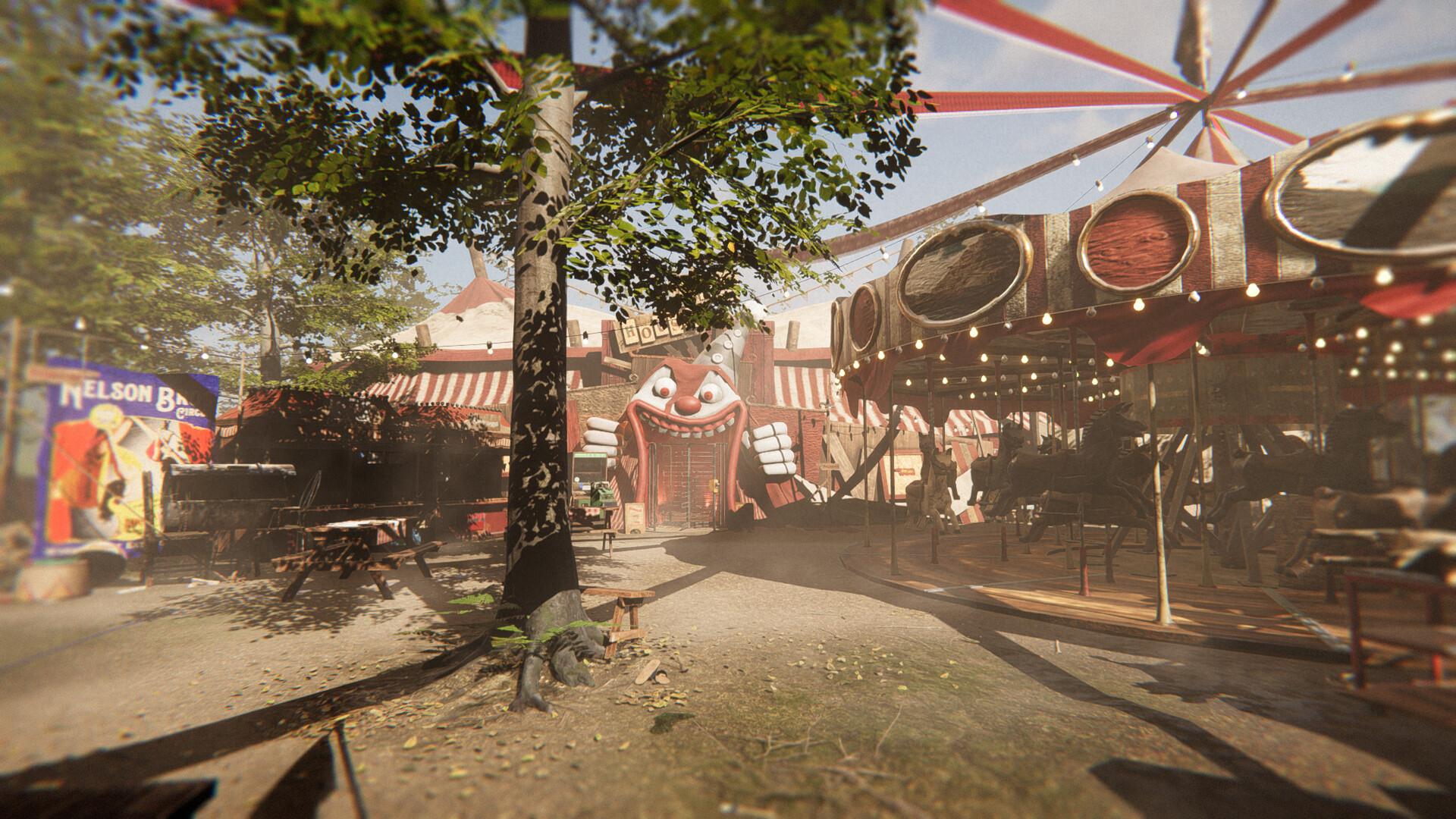
Mar
Reveil trades on the inherent surrealism of a circus to help weave its psychological narrative
There are few places you can visit that are as simultaneously creepy and surreal as a circus. Whether it’s a clown walking around with a permanent makeup-based grid or stepping into a hall of mirrors and losing your sense of direction. It’s the perfect setting for blurring the lines of reality, and that’s exactly what developer Pixelsplit is looking to do with Reveil.
It follows the story of a man called Walter Thompson, who wakes up to discover his wife and daughter have vanished. Of course, the poor guy has lost his memories, so he’ll need to investigate his surroundings to try and put all the pieces together.

Those surroundings happen to include a 60s-inspired circus fairground where spooky things will happen, and you’ll struggle to tell what is and isn’t real. It’s a fantastic setting for this kind of narrative since circuses are naturally surreal places anyway, allowing the developers to make some more creative illusions that, if done well, won’t be immediately obvious.
Creepiness is standard fare at the circus
Think about it. There are already clowns running about, while you can find those rides where the walls seem like they’re rotating and contorting around you. Everything is brightly colored and usually adorned with caricatures sporting horrifying grins. So, if you see something weird in Reveil, it’s perfectly conceivable that you will just think it’s part of the circus rather than a weird apparition.
That is, of course, until it happens a few times, and then it’ll have you second-guessing absolutely everything. Is that disembodied clown head merely a prop or a memory fragment representing something more sensitive?

It’s a tall order, but it has the potential to instill a sense of paranoia and constant confusion within us, which would firmly put us in the shoes of Walter. Regardless of how it plays out, it’s a great way to start if the developers are looking to make everything more disturbing as the story unravels.
Speaking of which, poor old Walter has to dive deeper into this madness, with all the visions and memory fragments getting darker as you progress. It’s certainly not something to play if you’re looking for a happy time it seems.

What do you do in Reveil?
Of course, you can’t build an entire game around a creepy setting. So what will you get up to? On top of its psychological narrative, the rest of your time in Reveil is spent solving puzzles and exploring every nook and cranny for clues. The developers claim there’s a good deal of variety in the puzzles, and I hope that’s true.
A lot of games with horror elements rely too much on repeated puzzle setups that grow tiresome before the credits roll. That can kill the atmosphere, which is obviously a huge part of anything psychological. Although, equally, if they’re overly complex, that can upset the pacing, causing frustration if a logical solution isn’t immediately obvious. So, finding that balance will be key to Reveil’s success.

A good psychological thriller is hard to make
Another issue is the genre tends to overuse its scare tactics to the point you become immune to their effects. For instance, I found the titular Xenomorph in Alien: Isolation becoming more of an irritant than scary before the end. Much like balancing the puzzles, it’s a hard one to overcome, but hopefully, Pixelsplit can pull it off with Reveil because I love the premise.
Reveil is available to Wishlist on Steam or pre-order on PlayStation and Xbox ahead of its release on March 6th.
Thank you for reading this article. For more interesting coverage of all things indie games, be sure to check out the links below.
- Into Indie Games Homepage
- Best Indie Games of 2024
- Wrath: Aeon of Ruin Review
- Reveil Walkthrough – Chapter 1
- The Thaumaturge explores early 20th-century Warsaw, Thaumaturgy and Slavic folklore
